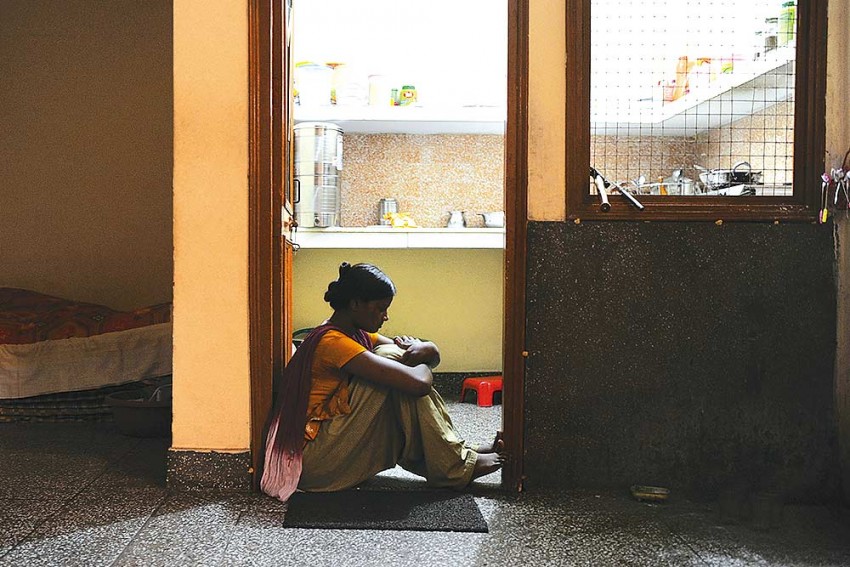While the world takes a breather and indulges in hobbies whilst spending time with their families and loved ones after being confined to the households in the wake of the Wuhan virus pandemic, a sordid but not bewildering reality has emerged. The reality is often disturbing for the demography that dreads being locked in a closed space. After all, quarantining is a class-privilege and it is not as rosy and plush as the celebrities and VVIP’s on their Instagram lives subject it to be.
Home, which for the majority like us is a safe place has become a prison for some—from where there is no escape and only agony follows. For people experiencing domestic violence, social distancing means being trapped inside with an abuser. And as more cities go under lockdown, activists are worried that attempts to curb the Wuhan virus will inadvertently lead to an increase in domestic violence.
Domestic violence is already a deadly epidemic—far deadlier than a measly virus that is only one-billionth the size of a human. One in three women around the world experience physical or sexual violence, mostly from an intimate partner, according to the World Health Organization. The ‘Intimate terrorism’ as some experts like to call it has only flourished in these torrid times.
The depression, anxiety, abuse and all the things negative have only been shooting off the roof since the world came to a standstill. The divorce rates have picked up and so has the domestic abuse cases.
The armistice that couples used to have camouflaged in the form of their daily routines seem to have been broken because of the lockdowns. Being confined with an abuser is bound to make you feel queasy and therefore a virus looks like an opportune escape.
Economists have been churning data models one after another suggesting a repeat of the great recession of 2008 or even worse but there is no data model suggesting even an iota of what women or for that matter any gender is going through in the lockdown.
According to a report in the New York Times, Mounting data suggests that domestic abuse is acting like an opportunistic infection, thriving in the conditions created by the pandemic and it is the dark underbelly of lockdown that governments around the world seem to have been neglecting. Imposing lockdowns without taking into cognisance the affect it would have on the lives of such people seems to have been the undoing, as the rising distress calls worldwide suggest.
With all attention focused on curbing a public health crisis, the problem of private violence risks being overlooked or deprioritized by authorities. The economic costs triumph the human lives and it is the sad truth that we have to live with and deal with.
In China, a Beijing-based NGO dedicated to combating violence against women has seen a surge in calls to its helpline since early February, when the government locked down cities in Hubei Province, then the outbreak’s epicenter.
In Spain, the emergency number for domestic violence received 18 per cent more calls in the first two weeks of lockdown than in the same period a month earlier.
In China, there has been an increase of 25 per cent in divorces due to the lockdown. Cases of filing divorce have increased numerously in Xian city in central China and Dongguan in Shenzhen province.
In Miluo, Wuhan Province, government employees do not even have time to drink water due to excessive divorce case filling. In fact, according to the government website, by mid-March, many married couples in the city have filed for divorce.
In just one month more than 300 couples have filed for divorce in China’s Sichuan province. The reason for this is that the husband and wife are spending more time with each other at home. This has led to increasing disputes between them. The Marriage Registry Office of the Dahou region of China has clarified that the number of applications has increased since the outbreak of the virus.
Even India has not been left untouched. A 16-year-old girl on Friday accused nine persons of raping her, after a friend misguided her to take a shortcut through a jungle in Dumka, Jharkhand. The incident happened after one of her friends dropped her at the Karudih area in Dumka since her hostel was shut due to the lockdown.
The circumstances are never seen before–we are fighting an invisible enemy and to further aggravate the situation, add another public health crisis in the form of depression and abuse to the toll of the novel Wuhan virus.
With India now extending the lockdown to May 3rd taking the total lockdown period to over 40 days, we need to be more empathetic and compassionate towards each other. Now more than ever we need to look out for the most vulnerable in our society. Retreating into our homes does not mean cutting ourselves off from our communities. The world can do with a little love from all of us in these gloomy times. After all, we are all in this together.
